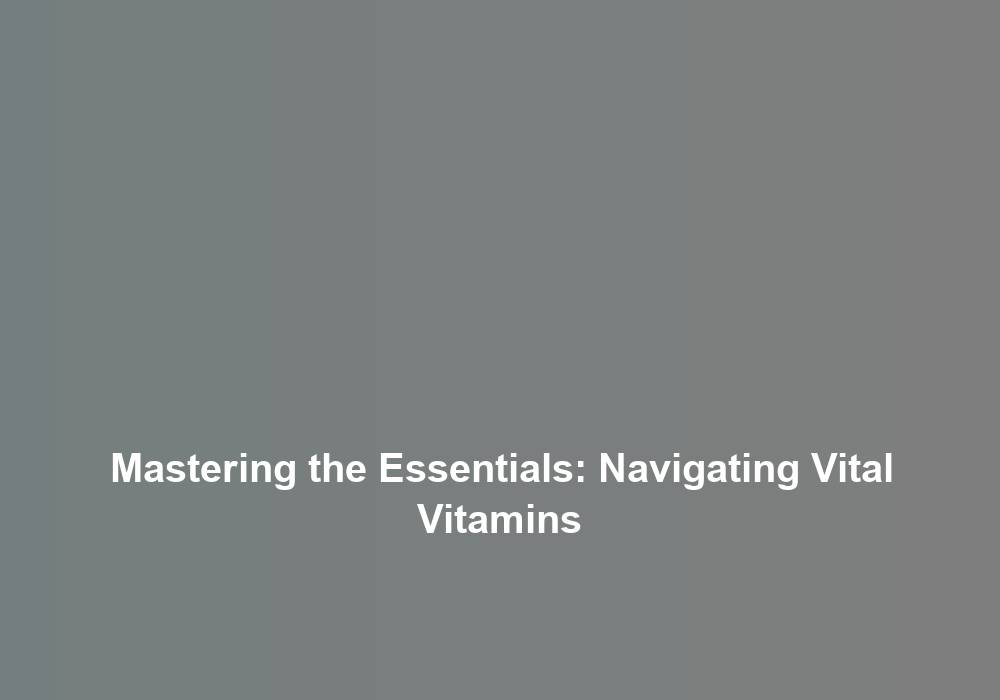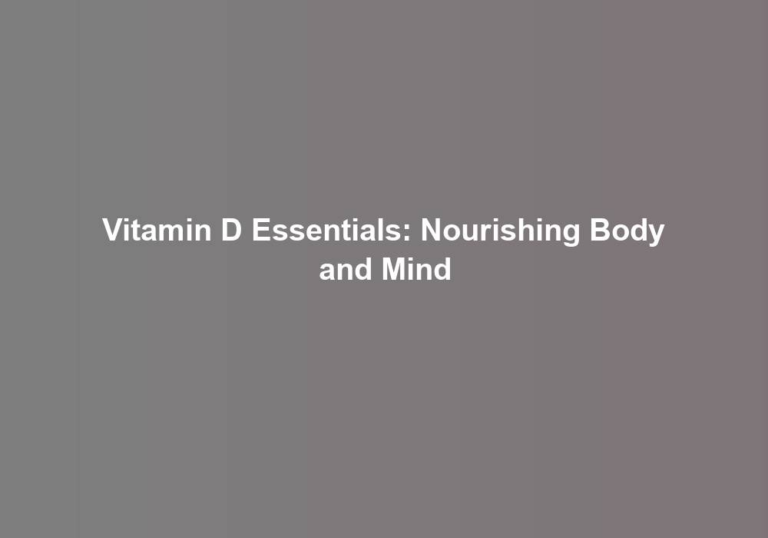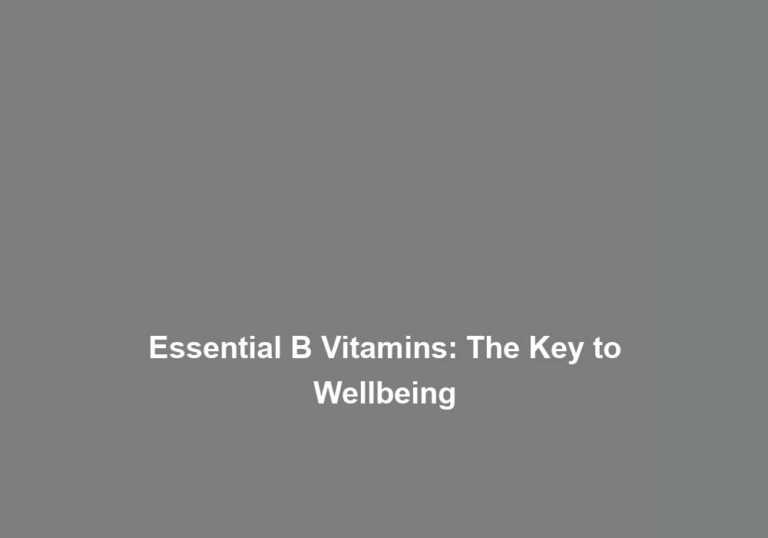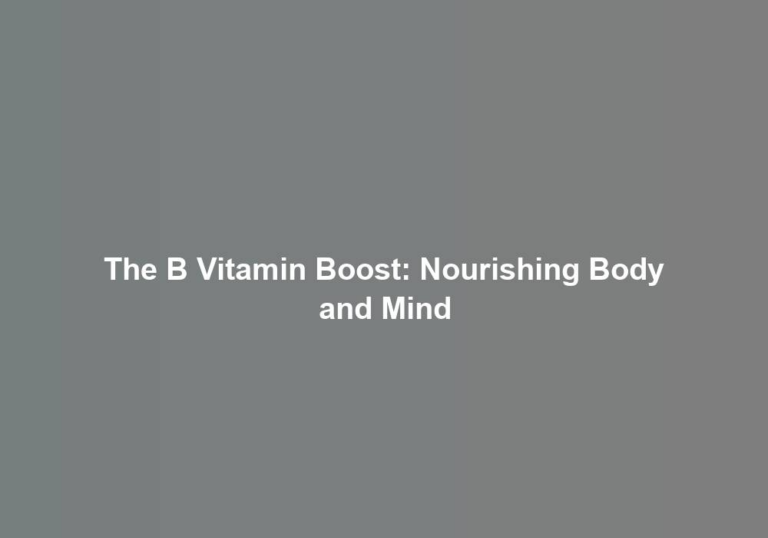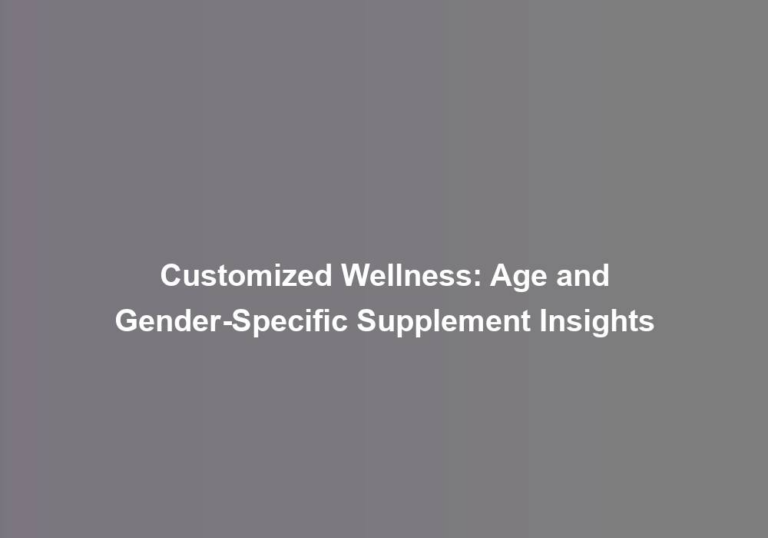Mastering the Essentials: Navigating Vital Vitamins
YouG??ve probably heard the saying, G??You are what you eat.G?? When it comes to your health, the importance of vital vitamins cannot be overstated. But with so many options and conflicting information out there, it can be overwhelming to know where to start. Understanding the key vitamin groups and identifying common deficiencies is the first step towards optimizing your health. But how do you know if youG??re getting enough? Stick around to learn practical tips for incorporating vital vitamins into your daily routine and maximizing their absorption for maximum benefit.
Importance of Vital Vitamins
Understanding the importance of vital vitamins is crucial for maintaining optimal health and well-being. Vitamins play a significant role in various bodily functions and are essential for overall health. Each vitamin offers specific benefits and has a direct impact on your well-being. For instance, vitamin A is crucial for maintaining healthy vision, supporting the immune system, and aiding in proper organ function. Vitamin C acts as an antioxidant, supporting the immune system, and aiding in the absorption of iron. Meanwhile, vitamin D is essential for bone health, immune function, and overall well-being. These are just a few examples of the many vital roles that vitamins play in your health.
The health impacts of consuming an adequate amount of vitamins cannot be overstated. Vitamin benefits are numerous, including promoting growth and development, supporting immune function, aiding in the conversion of food into energy, and acting as antioxidants to protect cells from damage. Deficiencies in vital vitamins can lead to various health issues such as weakened immune function, fatigue, impaired vision, and even more severe conditions in the long term. Therefore, ensuring that you obtain the necessary vitamins through a balanced and diverse diet is crucial for maintaining your overall health and well-being.
Understanding the importance of vital vitamins empowers you to make informed decisions about your diet and lifestyle, ultimately contributing to a healthier and more fulfilling life.
Understanding Key Vitamin Groups
Navigating through the world of vitamins and understanding the key vitamin groups is essential for maintaining optimal health and well-being. Vitamins are classified into two main groups: fat-soluble vitamins (A, D, E, and K) and water-soluble vitamins (B-complex vitamins and vitamin C). Each group plays a crucial role in supporting various bodily functions and processes.
The fat-soluble vitamins, including vitamins A, D, E, and K, are essential for overall health. Vitamin A is vital for vision, immune function, and reproduction. Vitamin D helps in calcium absorption, bone health, and immune system support. Vitamin E is an antioxidant that protects cells from damage, and vitamin K is necessary for blood clotting and bone metabolism.
On the other hand, water-soluble vitamins, such as B-complex vitamins and vitamin C, are equally important. The B-complex vitamins, which include B1, B2, B3, B5, B6, B7, B9, and B12, are involved in energy production, red blood cell formation, and neurological function. Additionally, vitamin C acts as an antioxidant, supports the immune system, and aids in collagen formation.
Understanding the benefits of each vitamin group is crucial for meeting your nutrient requirements and ensuring overall well-being. By incorporating a balanced diet that includes a variety of fruits, vegetables, whole grains, and lean proteins, you can ensure that you are obtaining these essential vitamins to support your bodyG??s needs. Remember, a well-rounded approach to nutrition is key to reaping the benefits of these vital vitamin groups.
Identifying Common Vitamin Deficiencies
As you explore the realm of vitamins and their crucial roles in supporting bodily functions, itG??s imperative to recognize the signs and implications of common vitamin deficiencies. Identifying and understanding these deficiencies is essential for maintaining optimal health and well-being. Here are some key points to keep in mind:
-
Symptoms: Recognizing the symptoms of common vitamin deficiencies is crucial for early intervention. Symptoms may include fatigue, weakness, pale skin, shortness of breath, and unusual food cravings. Understanding these signs can help you take proactive steps to address potential deficiencies.
-
Treatment: Addressing vitamin deficiencies often involves incorporating the lacking nutrients through diet, supplementation, or medical intervention. Understanding the appropriate treatments for specific deficiencies is vital for restoring your bodyG??s optimal functioning.
-
Prevention: Implementing a balanced and varied diet is the cornerstone of preventing vitamin deficiencies. By including a wide range of nutrient-dense foods in your diet, you can significantly reduce the risk of developing deficiencies.
-
Management: For individuals with specific dietary restrictions or medical conditions that may predispose them to deficiencies, careful management is key. Understanding how to manage and mitigate the risk of deficiencies in these circumstances is essential for maintaining overall health.
Tips for Incorporating Vital Vitamins
To ensure you are getting the vital vitamins your body needs, itG??s important to focus on incorporating them into your daily diet. By including a variety of nutrient-rich foods such as fruits, vegetables, whole grains, and lean proteins, you can meet your recommended intake of essential vitamins. Paying attention to potential deficiencies and making adjustments to your diet can help you maintain optimal levels of these vital nutrients.
Dietary Sources
Incorporating vital vitamins into your diet can be achieved by focusing on a variety of nutrient-dense foods that are rich in the essential vitamins your body needs for optimal health and functioning. Here are some practical tips for incorporating vital vitamins into your diet:
- Emphasize nutrient-rich foods: Incorporate a wide range of fruits, vegetables, whole grains, lean proteins, and healthy fats to ensure dietary balance.
- Plan nutrient-diverse meals: Consider meal planning to incorporate a diverse range of essential vitamins into your diet.
- Explore vitamin-rich options: Include foods such as spinach, kale, sweet potatoes, citrus fruits, nuts, seeds, and lean meats to boost your vitamin intake.
- Consider fortified foods: Incorporate fortified options like fortified cereals, plant-based milk, and nutritional yeast to enhance your vitamin intake.
Recommended Intake
Emphasize nutrient-rich foods in your daily meals to meet the recommended intake for vital vitamins essential for your overall health and well-being. Achieving optimal levels of essential vitamins such as A, C, D, E, and K can offer a myriad of health benefits, including bolstering your immune system, supporting bone health, and promoting skin vitality. Meeting your personalized needs for these vital vitamins depends on various factors such as age, gender, and specific health conditions. ItG??s important to be mindful of the daily requirements for each vitamin, which can fluctuate based on individual circumstances. Incorporating a diverse range of fruits, vegetables, lean proteins, and whole grains into your diet can help ensure that you are meeting these daily recommendations. Remember, a balanced and varied diet is key to obtaining the essential vitamins your body needs for optimal health.
Potential Deficiencies
Ensure that your meals include a diverse array of nutrient-rich foods to help prevent potential deficiencies in vital vitamins essential for maintaining your overall health and well-being. Making dietary adjustments can help ensure you get all the essential vitamins you need. If youG??re concerned about potential deficiencies, consider the following:
- Incorporating more leafy greens, nuts, and seeds into your diet to boost your vitamin E intake.
- Consuming fortified dairy products and spending more time in the sun to increase your vitamin D levels.
- Including more citrus fruits, strawberries, and bell peppers in your meals to up your vitamin C intake.
- Eating more fish, eggs, and dairy products to ensure youG??re getting enough vitamin B12 in your diet.
Recognizing symptoms of vitamin deficiencies early can also help you address any potential issues before they become more serious.
Maximizing Vitamin Absorption
To enhance the absorption of vital vitamins, consider incorporating certain dietary and lifestyle habits that can optimize your bodyG??s ability to utilize these essential nutrients. Improving absorption can be achieved by pairing certain nutrients together. For instance, consuming vitamin C-rich foods alongside iron-rich foods can significantly enhance the bodyG??s ability to absorb iron. This means that adding a squeeze of lemon to your iron-fortified cereal or including bell peppers in a spinach salad can help maximize iron absorption. Similarly, pairing healthy fats with fat-soluble vitamins (such as vitamins A, D, E, and K) can improve their absorption. Incorporating avocado, nuts, or olive oil into a meal containing these vitamins can enhance their bioavailability.
In addition to nutrient pairing, adopting a diet rich in fiber can also contribute to improved vitamin absorption. Certain types of fiber can help support a healthy gut environment, which plays a crucial role in the absorption of various vitamins and minerals. Whole grains, fruits, and vegetables are excellent sources of dietary fiber and can aid in optimizing the absorption of essential nutrients. Furthermore, maintaining a balanced and diverse diet, along with regular physical activity, can enhance overall nutrient absorption.
Consultation With a Healthcare Professional
When considering your vitamin regimen, itG??s important to seek professional healthcare advice. Consulting with a healthcare professional can provide expert guidance for your health needs. Essential consultation tips can ensure that youG??re making informed decisions about the vitamins you take.
Professional Healthcare Advice
Before making any changes to your vitamin regimen, it is essential to seek professional healthcare advice by consulting with a qualified healthcare professional. When seeking professional healthcare advice, consider the following:
- Understanding your individual health needs is crucial for tailored recommendations.
- Ask about potential interactions between vitamins and any medications you may be taking.
- Discuss any existing health conditions that may impact your vitamin requirements.
- Inquire about the most effective forms of vitamins for your specific health goals.
Obtaining healthcare guidance and professional recommendations ensures that your vitamin regimen aligns with your unique health profile and minimizes potential risks. A healthcare professional can provide personalized advice that takes into account your medical history, current medications, and individual health goals.
Expert Guidance for Health
Seeking guidance from a qualified healthcare professional is essential for optimizing your vitamin regimen to meet your specific health needs. Nutritional guidance and health recommendations from a healthcare provider can help you make informed decisions about which vitamins are suitable for your individual requirements. A healthcare professional can provide personalized advice based on factors such as your age, gender, dietary habits, medical history, and any existing health conditions. They can also assess the potential interactions between vitamins and any medications you may be taking. Below is a table illustrating the importance of seeking expert guidance for health:
| Reasons to Seek Expert Guidance for Health |
|---|
| Personalized nutritional advice |
| Identification of specific health needs |
| Evaluation of potential interactions |
| Tailored recommendations |
| Comprehensive health assessment |
Essential Consultation Tips
Consider consulting with a healthcare professional to receive personalized and informed guidance on optimizing your vitamin regimen. When seeking a consultation, keep the following tips in mind:
- Client Rapport: Look for a healthcare professional who prioritizes building a strong rapport with you to ensure effective communication and understanding of your unique needs.
- Effective Communication: Be prepared to openly discuss your current health status, dietary habits, and any existing medical conditions to facilitate a comprehensive consultation.
- Active Participation: Actively engage in the consultation process by asking questions and seeking clarification to ensure you fully understand the recommendations provided.
- Long-term Planning: Work with your healthcare professional to develop a long-term plan that aligns with your health goals and lifestyle, ensuring sustained success in optimizing your vitamin intake.
Conclusion
So, there you have it – the essential guide to navigating vital vitamins. Now youG??re armed with the knowledge to make informed choices about your health. Remember, without these magical pills, you might as well be eating air for all the good itG??ll do you. Stay savvy, and keep those vitamins flowing. Your body will thank you for it! And if not, well, at least you tried.

